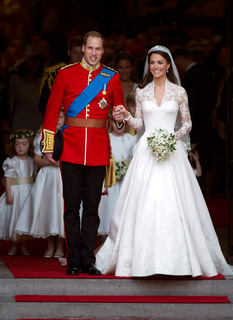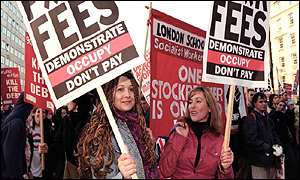
His opening set the tone with a lamentation for what The Potteries has lost. We live in a city that is abused and not cared for, an industrial city in a post-industrial age desperately in need of regeneration. For outsiders, he mused, the impression Stoke conveys is a place that's falling to bits. But under the surface still lies the ceramic capital of the world. The pottery industry remains a strategically important employer and driver of the local economy, and it would be churlish to turn our back on it in the name of moving forward. The buildings of the city, at least those that remain from Stoke's halcyon days, offer a framework for collective memory. For good or ill they anchored Potters' identities in place: the factory, the methodist chapel, the pub, the cinema. Leaving them to rot or wiping the slate clean for regeneration projects effaces that memory. With each bottle kiln pulled down Stoke becomes alienated from the history that made it. Every new mini-megaproject makes the past more strange, more foreign. Regeneration therefore should be people-focused. Investment in the people of Stoke will give them the capacity to regenerate the six towns themselves.
Fred Hughes more or less repeated Matthew's argument, but (perhaps inadvertently) flagged up the problems Stoke's parochial culture has bequeathed business and local politics. The pottery industry grew up as family concerns in particular localities where there were already established villages and towns. As the factories expanded workplaces and business were infused with a localist flavour. For instance, Fred said his granny - a proud Burslem resident - prided herself on never having visted Longton (and this attitude is very much alive today). So despite the 1910 federation of the six towns into the glamorous metropolis of Stoke-on-Trent this localism has persisted. But during the 'heroic' period of Stoke's industrial expansion it found an outlet in architectural expressions of civic pride, such as the Telephone Exchange in which Fat Cat's sits. All of it contributed to a sense of place that appears to be absent today.
AN Wilson talked about his family's roots in The Potteries. His grandfather, Tom Wilson, was described by contemporaries and historians as the 'last of the great potters'. And later on his own father was MD of Wedgwood. Stoke's decline however lies not in the whirlwind of deindustrialisation that howled through the city in the 80s but much earlier. The first was the Wall Street crash and the second was the floating of Wedgwood on the stock exchange in 1962. By changing the traditional pattern of outright family ownership Josiah Wedgwood V (apparently a self-confessed Marxist) exposed the firm to the rapaciousness of international capital and imported its dog-eat-dog ethos to North Staffordshire. Family firms folded or were absorbed by big business and then the whole system undermined itself as money was chased to the exclusion of all else. He argued that the burgeoning ceramics industry in China is based on the lessons of what made Stoke an industrial powerhouse, of close-knit family businesses rooted in communities. There was more than a hint that if we can go back to basics, then Stoke has a chance of breaking out its cycle of decline.
The speaker from English Heritage said ceramic production in North Staffs goes back to the Roman occupation. Two thousand years on the city is literally built on centuries of pottery waste. When a lift was built onto the back of Burslem School of Art a few years ago, piles of rare 15th century pottery was unearthed. He concluded by saying a successful regeneration process has to incorporate this heritage.
The National Trust speaker said the cultural legacy of Stoke is of national importance. Quite apart from the global contribution the city has made to ceramic design and manufacturing it has made itself felt in literature and scholarship (and music, then again ...). Stoke's home to buildings and sights immortalised by Bennett and Hoskins, and they deserve preserving. She thought Matthew's book offered an optimistic vision of the city, and what policy makers and the city's people have to do is create new stories to animate the space. The NT's contribution is make the case for beauty, which can still be found in Stoke, but it is a beauty that has to be "reclaimed" to find its place in the city's future.
The subsequent questions came thick and fast: how important are ceramics for Stoke's future? What to do about 'generic' new builds? Are Stoke's difficulties cause by the state? Does Stoke need better marketing? Is the obsession with the past preventing Stoke from moving on?
New builds are obviously a bugbear for Matthew. He argued contemporary designers have lots of good intentions but exciting elements tend to evaporate. They require vision, good planning, and the participation of the Potteries public. Unfortunately, AN Wilson couldn't muster much optimism. He believed the fate of the city is governed by forces external to it. But he did speak approvingly of the Potteries Museum, which he felt possibly homes the most aesthetically pleasing collection of pottery in the world. The problem is no one nowhere is coming close to the craftmanship of Stoke's early industrial period today. If ceramics is going to make a big comeback this is where Stoke's heritage offers it an incomparable advantage.
Closing the formal part of the night, Tristram observed that at least where ceramics are concerned the pendulum of competition maybe swinging back in Stoke's favour. Paul Farmer, MD of Wade Ceramics reckons he can come to within 10 pence of Chinese prices thanks to automation. Will the plants shipped out to China and Indonesia make a return to Stoke?
In all it was an excellent evening peppered with free drinks, nibbles and establishment networking opportunities. But what I found very interesting was the nostalgia on display. The platform didn't so much as enunciate a longing for an England of Spitfires and sonnets beloved of home county Tories but a very specific appreciation of the past that maps onto a fraction of manufacturing capital: the fraction that was eviscerated when Thatcher turned Britain into a neoliberal laboratory. The contributions of Matthew and AN Wilson hark back to a time when people did useful things and they, or rather their ancestors, could be sure of their position. The transition from a more "caring" capitalism to one in which all human relationships were reduced the cold cash nexus sundered the intimate ties binding pottery families to their workforce. The ceramics and buildings of bygone eras speak of the talent and patrician pride their class fraction once had. Now heritage is a weapon they wield to try and exert its influence once more as Stoke is remade by public projects and big business. It is a rearguard action to try and convince the next generation of organic entrepreneurs of their validity for the 21st century.
On one level, the battle is won - no one disagrees that Stoke might recapture its civic beauty if the old is restored and the new respects the city's vernacular. But the decisions about how the city looks is taken elsewhere, by remote state and private bureaucracies. To reclaim that control, to realise the vision of Matthew Rice's book demands - as he recognises - the mass participation of locals in the city planning process. His position concedes the day of enlightened local elites is long over. If Stoke is to recapture the glories of its heroic period and surpass them, now the city's working class is the only social force capable of realising it. What this shows is how abstruse debates over art and architecture within elite circles can overspill and become an object of class struggle itself.






